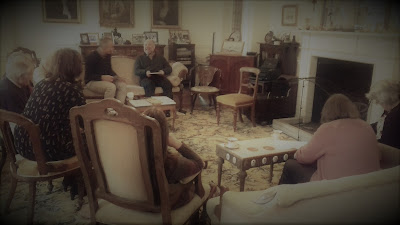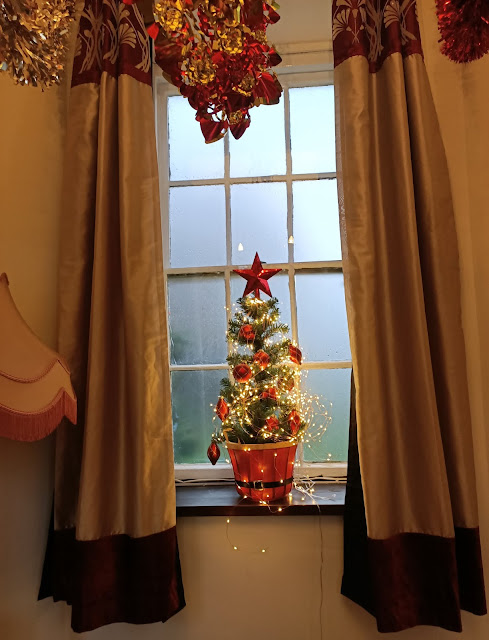How to Catch a Memory
Today we had the pleasure of hosting an oral history
training session. Thanks to funding from the Heritage Lottery Fund (HLF), our
special guest speaker was Chris Copp, Senior Museums Officer at the Archives
& Heritage department at Staffordshire County Council. We were also joined
by 10 people - members of Betley Local History Society (BLHS), some of the
tenants of the house, and family members including Prof Brown.
I suppose its worth me explaining exactly what oral history
is. It is spoken history, often locally distinctive, people-centred and social.
It is unofficial in that it is not produced by governments, or academics, nor
is it content produced by an official source like a newspaper. Usefully for us,
within the context of the history of Betley Court and its gardens, oral history
can compensate for a lack of other evidence or complement and humanise existing
knowledge.
If you visit a museum, those little information boards, with
quotes from ‘ordinary people’ are created this way. Oral history can often give
a human voice to dry historical facts, and it is easily relatable to a
visitor’s own experience of life. It gives colour to historical information.
Chris has extensive experience of gathering oral histories,
through his work with museums. This includes projects on the history of a shoe
making factory, and projects about local communities, so it was interesting to
hear about the evolution of the discipline within museum services and academia.
We were also introduced to a range of recording equipment,
all digital gadgets these days. Oral history making really came into existence
as recording equipment became available, although luckily for us, recording
devices take the form of handheld voice recorders and not the reel-to-reel
tapes of yesteryear!
Chris covered the subject of conducting an interview and
made some clever suggestions for starting an interview and putting an
interviewee at ease. Very useful! A smart suggestion he shared was to use
artefacts; photographs and objects to jog memories (I once used a posy of fresh
aromatic herbs with a seniors’ reminiscence group – the memories that posy
conjured up were amazing!)
So, once we’ve collected lots of fascinating stories, what
should we do with them? Chris gave guidance on transcribing and archiving our
data. He also advised how to collect data, and gain permission for how it is to
be stored and used in the future. Excitingly for us, we learned that the oral
histories we collected could be archived within the Archives & Heritage
collections. This means that for any future historians of Betley Court, Betley
village, the oral histories we collect will be publicly accessible for their
research. A fitting legacy for these memories indeed!
In the future, our plan is to use stories we uncover (with
appropriate permissions granted!) to inform history boards around the garden
for visitors. We would like to produce booklets about specific subjects in
Betley Court’s history, like its role as Red Cross hospital during World War
Two, Or as part of the history of the gardens, particularly during its
abandoned years where official documentary evident is at best sketchy, but
often non-existent . And I’m sure our guests from BLHS have similar projects in
mind. I hope they found our session today as interesting as we did.
Best wishes
Ladybird Su
For further information about Betley Local History Society click here: blhs.co.uk





Comments
Post a Comment